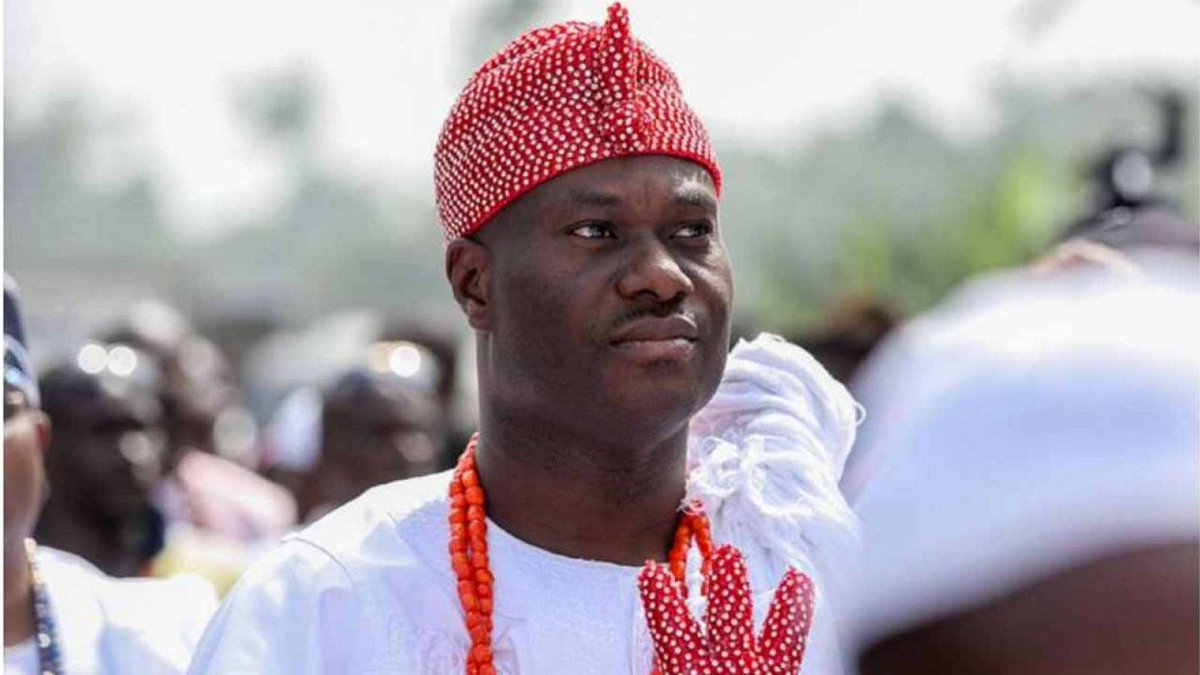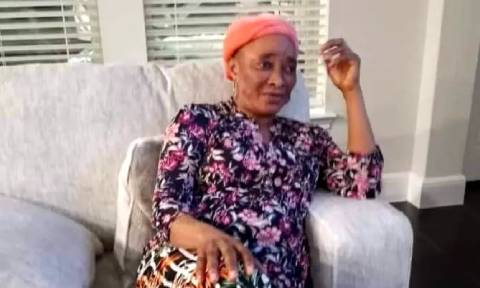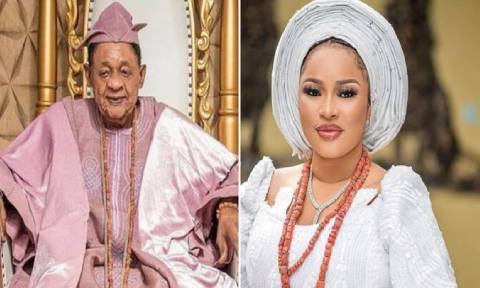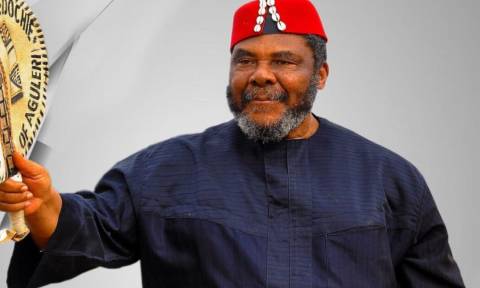FILMS will literally take centre stage in Akure, the Ondo state Capital, as it hosts this year’s edition of Festival of Indigenous African Language Films.
The festival, the fourth in the series, is on the theme: Films, Politics, and Society. Organized by Remdel Optimum Communications Limited in collaboration with Centre for Black and African Arts and Civilisation (CBAAC), the event will hold from Sunday, October 3 to Saturday October 9, at the Owena Intenational Hotels, Akure. Announcing the hosting of the festival at a press conference held at the board room of CBAAC, Broad Street, Lagos, the managing director /chief executive officer of Remdel Optimum Communications Limited, Pastor, (Mrs) Biodun Ibitoye, who is also the director of the festival notes that African languages will enrich the content of African films and project better the overall image of the African nationalities so as to expose these cultures globally. At the conference were Director-General of CBAAC, Prof. Tunde Babawale, Chairman Board of Directors Remdel Communications, Deacon Remi Ibitoye, Pastor (Mrs.) Biodun Ibitoye, and top management staff of CBAAC, and others.
Speaking on the significance of film as a medium for the promotion and propagation of languages, Prof. Babawale noted that film has a wider reach and also has the potential of engraving itself in the mind of the people. “There is no better way to market our country and our culture other than through film. It has a two-fold ways of communication – audio and visual. This is not our first partnership, we were part of the festival last year. We want to use this film festival to project African culture; and we also want to use it as an opportunity to show that our language can help in enriching our faith. It is a way of teaching our children and ourselves about our history, about our culture. That is why we are celebrating this festival. We also believe that there is no better way to preserve our cultural heritage than the instrumentality of language. If our language survives, our culture survives; if our language atrophies, our culture will atrophy. There is no two ways about it,” he said.
Prof. Babawale also noted that one of the ways to preserve a language apart from speaking it is to use the film medium. “Many of us don’t speak these languages, but when we listen to it, and watch some of these films in indigenous languages, we tend to pick up more ones and enrich our vocabularies. And we that, It reminds us of the good aspect of our culture. More importantly, that is one means of maintaining a linkage between the continent and the Diaspora. Those of us who have travelled out will know that there is nothing that has been able to take us to the Diaspora better than Nollywood.
“Also, and very important too, Remdel and CBAAC believe that we also need to contribute to the ongoing process of democratisition, using this medium. Politics is all embracing, and permeates and pervades all aspects of our lives. And we believe that one of the ways by which we can bring messages to our people that can bring about the evolution of a new political culture, is to use indigenous language films medium. We believe that we can use the medium of film to preach about political tolerance, to preach the gospel of non-violence, and ensure that we have a better Nigerian society. And then create what we call an ethical foundation for politics, because part of the problem that we have in the political scene today is the absence of ethics. But the moment we introduce ethics into politics we are likely to have a better practice of politics as it is done in other societies,” Babawale said.
Pastor Ibitoye in her speech noted that films in African languages contribute better to the pool of universal knowledge as pertaining to African tenets; spiritually, culturally, politically and economically while these languages preserve the rich cultural heritage, ordinances, norms, and values of the peoples of Africa.
“While making of films in African languages will refocus, reengineer and reposition them and save them from extinction, it also will expand the coding, documentation, and communicative capacities of the languages. Making of films in indigenous languages will facilitate the linkage of Africans in Diasporas to their roots and project the rich tourism potentials in Africa,” she stated, adding that the choice of the theme derives from the fact that 2011 is an election year in Nigeria, the host country and the realisation that films and indeed arts have a lot to contribute to the development of a robust and violent free political culture in Africa.
“Most elections previously held in Nigeria and most part of Africa have come under scathing criticisms and the time is now for film-makers who are also part of the society to contribute to finding lasting solutions to the problem in their own way.” According to Mrs. Ibitola, said the objectives of the festival include focus the attention of filmmakers to shoot films that will trigger political education, political tolerance and political persuasion; show the capability of films to contribute to ethical, moral and political values for the well being of Africans; to exhibit the capability of films as a vehicle for education, cultural and political understanding; and engage in rigorous intellectual debate to finding out what films could achieve for moving Africa forward politically. The objectives also include to explore films as a means of political expression and communication of political reality; to play the role of strategic intervention which will contribute to the development of sound political culture that is truly democratic, sustaining and enduring; and to trigger action through creativity and imagination in films and achieve a new ethos, a rethinking and a new way of behavior.
The highpoints for this year’s festival are skill acquisition, yearly film-makers lecture, film makers summit, media day, karakata forum, women programme, film screening among others.
“Skill acquisition is the bedrock on which the entire programme rests, that is, the ability to shoot good quality films that rank among the best anywhere. This will take the form of training and retraining of professionals. Clinics in specialised areas of film production will run through out the festival. Each participant will have the opportunity to choose an area of interest in which they will be trained. The clinics shall be handled by the best brains in each field. Some of the facilitators are Mr. Tunde Kelani of Mainframe Productions, Mrs. Joke Silva of Lufodo Productions, Mr. Tunji Bamishigbin and the Nigerian Film Institute, Jos.
“The yearly film-makers lecture will be delivered by Prof. Wole Ogundele, the Director General of Centre for Culture and International Understanding, Osogbo, Osun state. The lecturer, a renowned academics has a wide and varied knowledge of the Film Industry. Eminent Professor of Political Science and renowned author, Prof. Tunde Babawale, Director and Chief Executive Officer of CBAAC will be the Chairman at the ceremony.
“The film-makers summit will familiarise filmmakers from all over the country to some tourist centres and film locations in Ondo and Ekiti states. The tourist attractions will be exposed to the film-makers as possible film locations for the purpose of shooting their films in these locations. The over all intention is to make these States a film- production friendly community. Tourist attractions and film locations to visit are the scenic topography adoring the two States,” she said.
Explaining further, she disclosed that the media day will involve interactive discussions on the films, information dissemination and governance. The discussions will be led by Mr.Ben O. Ahiante, Director of Orientation, Federal Ministry of Tourism, Culture and Orientation.
Those to exhibit this year are manufacturers and dealers of broadcast equipment, films equipment manufacturers, broadcasting companies, production companies, post – production companies, films marketers and distributors, TV stations, films and broadcast schools, software sompanies and advertising agencies. “We also expect the State to mount exhibition to show its rich culture and tourism potentials.
“Karakata Forum is the business aspect of the event and will be attended by investors and practitioners in the entertainment industry, both in private and the public sectors. The forum will also have in attendance banks and insurance companies. There shall be two sessions where participants will be looking at The Future of Film Distribution in Nigeria. This is to be followed with another session on Options for Film Financing. Both sessions will be handled by two seasoned professionals, Messers Femi Odugbemi and Greg Odutayo respectively. It will chaired by the Director General of the National Film and Video Censors Board ( NFVCB), Mr. Emeka Mba.
“The Women Programme is meant to carry the womenfolk along in the Festival. A sub topic on Advancing the Role of Women in Politics Using the Film medium will be the high point. Her Excellency, the wife of the Governor of Ondo state, Mrs. Kemi Mimiko will chair the occasion.
“We intend to screen films throughout the event on daily basis and to premiere some new movies. Films from different countries of Africa will be premiered during the festival. The popular documentary on life and times of Chief M.K.O. Abiola which has been making the rounds all over the World will be screened along with many interesting films.
“Tiwa n tiwa forum: This will be held in an indigenous language, Yoruba, other indigenous languages will be introduce as from next year. The topic this year is Atupale ere sinima. Recognition Award will be given to notable individuals who have contributed to the development of film-making in Nigeria.”
This festival which is the fourth in the series started in 2007 largely as a capacity building workshop and which was then popularly referred to as the ‘behind the screen’ has since 2009, assumed a larger frame to become a full fledged film festival. “We have consequently dropped the prefix ‘behind the screen’ to emphasise the festival which is now ‘Festival of Indigenous African Language Films’. Permit me to say that behind the screen has not been consigned to the dustbin, we have only moved this aspect to the Remdel Arts and Film Academy, an Institute set up solely for training and retraining of professionals. The Festival of Indigenous African – Language Films (FIAF), she said, is broadly conceived as an expo of indigenous African language films adding that Africa has a lot culturally to offer other civilizations and the best way to project these potentials is in the diverse indigenous languages of African nationalities, although the films are expected to be sub titled in English and/ or French to give them the desired universality.”



















